by Rob Heyman for TrekCore.com
Star Trek: The Next Generation saw a number of significant changes between its first and second seasons, none more glaring than the replacement of Beverly Crusher with Kate Pulaski as chief medical officer aboard the Enterprise.
At Diana Muldaur’s request, the actress was never elevated above a ‘special guest appearance’ title for the second season opening credits, implying a kind of temporary or experimental status as a cast member. When the third season debuted, the medical reigns had been handed back to Gates McFadden, who was asked to return to the series, and Pulaski was never heard from again (outside of a few brief references in “Who Watches the Watchers,” “Ship in a Bottle,” and “Endgame,” the Voyager series finale).
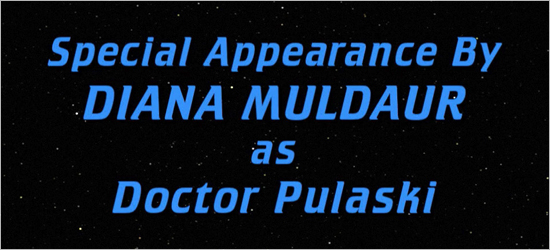
While it’s hard to imagine The Next Generation without Doctor Crusher, looking back at the second season, it’s just as hard not to entertain the possibility that Pulaski’s character could have really succeeded for the series.
Despite some obvious and none-too-subtle character nods to Doctor McCoy, Pulaski displayed a certain resolve and wisdom that could have opened the door for some interesting relationships with the other crew members. Whatever the definitive reason for Pulaski’s replacement – be it lack of chemistry, creative differences, or Muldaur’s dissatisfaction with the show — there’s enough in the second season to point to a character with tremendous development potential.
Pulaski biggest opportunity for growth, had she stayed with the series for the third season and beyond, likely would have come with Troi, and maybe even Riker. Troi was set up from the start as someone who would be her closest friend, but that bond was never fully realized despite some promising starts in “The Child” and “The Icarus Factor,” in particular.
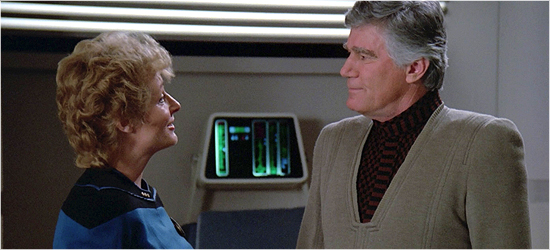
As reviled as it is as an episode, owing largely to its soap opera melodrama, “The Icarus Factor” is one of the few episodes that truly tries to weave her character into the tapestry of the other crewmembers’ lives – and it works. It may seem a bit corny that Pulaski was once romantically involved with Riker’s father, but Muldaur sells it, and the scene where she tells Riker to get over his anger for his father is a wonderfully layered moment setting the stage for an interesting parent-child dynamic with Riker.
You saw some of that when she confronts Wesley on learning to take charge in “Pen Pals.” I can only imagine the ball-busting she would have given Riker over his fears in assuming command in “The Best of Both Worlds.” Instead, that ball-busting was left, somewhat jarringly, to Guinan.
Both Troi and Riker have complicated relationships with their parents. It would have been interesting to see how Pulaski and Lwaxana Troi would have played off each, especially once Troi and Pulaski became a lot closer and Troi embraced her as a surrogate mother. When you consider this, it almost makes sense now that “The Child” was made the debut episode for Season Two – it gives us a necessary medical story to introduce Pulaski and to sow the seeds of her connection with Troi.
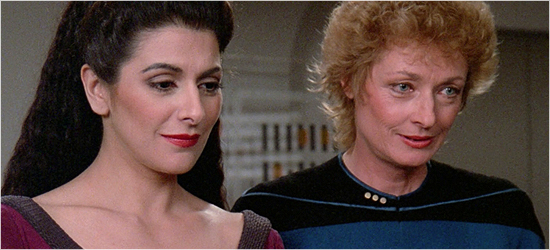
The biggest problem with Pulaski was the decision to pit her against Picard, and to a lesser extent Data. Had Data been portrayed as colder and more Spock-like, I could buy her ongoing distrust of him as a lifeless machine (and fulfilling yet another intended McCoy trait). Fortunately, Pulaski did warm to Data over the course of the season, but had she not, fans would have completely turned on her because… well… we liked Data, and so did the rest of the crew.
The conflict between Crusher and Picard worked better because there was romantic subtext to it. There was a glaring lack of chemistry between Pulaski and Picard (and it would seem, Stewart and Muldaur) that made the conflict feel forced. I always had a soft spot for “Time Squared.” It is a weird and creepy episode. It works almost in spite of itself. However, the conflict between Pulaski and Picard is so cringe-inducing it even alienates Troi at one point. It is at this point that you know Pulaski’s days are indeed numbered as a regular character.
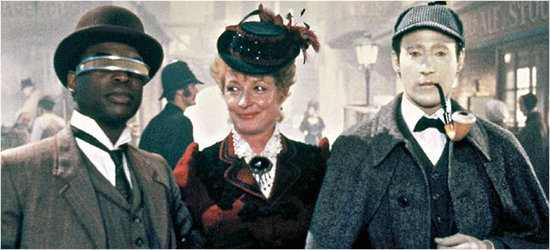
Two of Pulaski’s best episodes are “Elementary Dear Data” and “Up the Long Ladder.” “Elementary” is a stand-out in its own right, and a lot of the credit for its success goes to director Rob Bowman. I love how he introduces Pulaski in this episode as an eavesdropper in Ten Forward. We don’t really know Pulaski up to this point, but in this one scene he tells us she’s smart, fun, and even a little sneaky.
“Up the Long Ladder” shows us she’s also a bit of risk-taker when she decides to partake in a dangerous Klingon tea ceremony with Worf. This sets up a rather unlikely camaraderie with Worf, which could have been one of The Next Generation’s more interesting dynamics as the series progressed.
So what would have The Next Generation been like had Pulaski stayed aboard third season and beyond? As a serious character well-tenured into her responsibilities, it’s likely we would have gotten some truly compelling medical episodes. I never felt Crusher was given enough to do. She’s clearly a smart woman and has saved the ship from several crises. But she was never given a really meaty medical story to sink her teeth into.
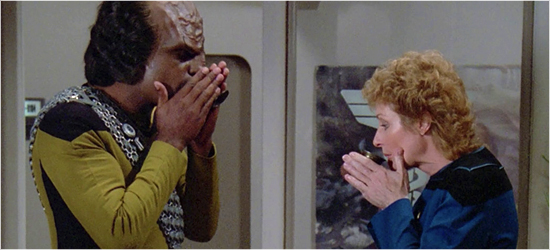
What’s more, Wil Wheaton’s decision to leave the series fourth season sidelined a big opportunity to broaden Crusher role as a single parent. This, along with the producers’ decision to minimize family drama post-fourth season in favor of more sci-fi fare, found Crusher with less to do save the ongoing and tiresome will-they-or-won’t-they unresolved romantic teasing with Picard.
Fans seem to be pretty divided on Pulaski as a character. It was easy to hate her because she came across too stuffy and parental, and her initial distrust of Data was something many of us just couldn’t swallow.
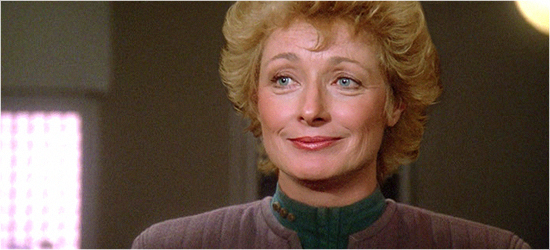
That said, she also has her share of fans, many of whom probably see, as I do, a character who had growth potential and whose service aboard the Enterprise came to an end far too soon.
